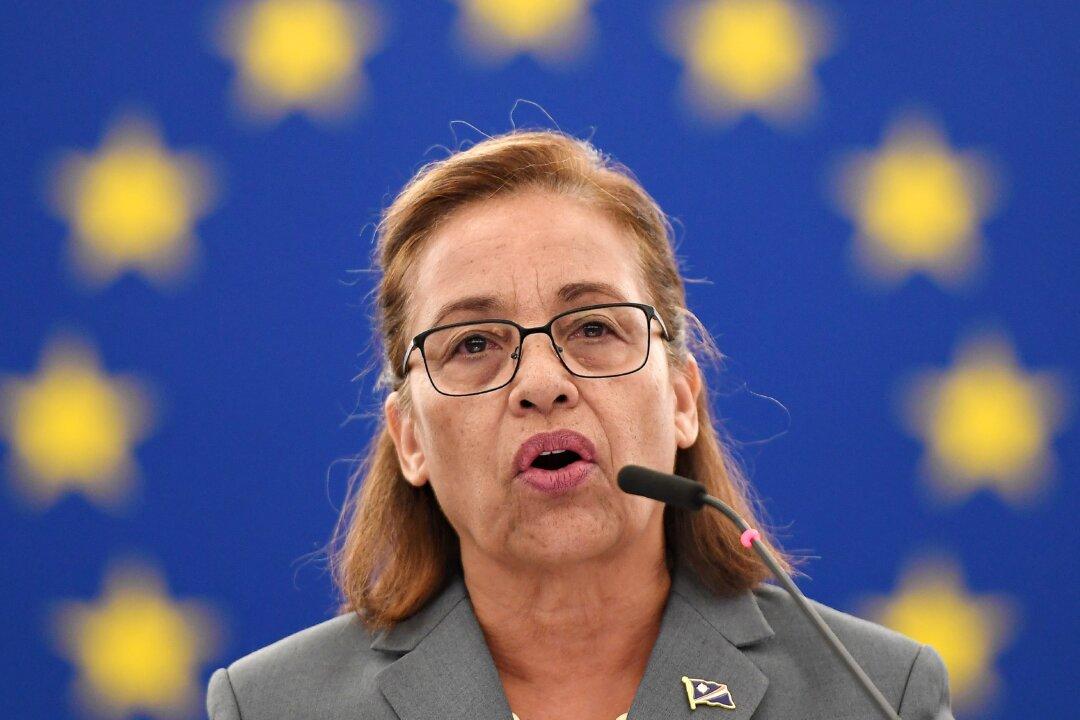China’s latest effort to exert influence over the strategic Pacific region is an unprecedented attempt at directly interfering with political affairs in the tiny Pacific island nation of Marshall Islands.
With a population of roughly 74,000 people, the Marshall Islands has a democratically elected government consisting of a president head of state and a unicameral parliament. The island was administered by the United States until it formally gained independence in 1986.
Hilda Heine, the nation’s first female president, recently narrowly survived a vote of no confidence motion initiated by eight senators on Nov. 5. The senators said they opposed the president on plans for the nation to issue its own cryptocurrency as legal tender alongside its official currency, the U.S. dollar.
But days before the vote was to take place, Heine broke her silence and alleged in a Nov. 9 interview with Radio New Zealand that the motion was brought by China-friendly politicians who were upset that her government rejected plans to set up an independent tax haven on one of the islands.
The proposed Rongelap Atoll Special Administrative Region was conceived by Chinese businessman and Marshallese citizen Cary Yan, with the support of Kenneth Kedi, the parliamentary speaker, and Kessai Note, a senator and former president of the Marshall Islands, according to Radio NZ. The special region would have relaxed tax and visa requirements for foreign investors.
Heine’s government initially rejected the proposal, because of concerns that it would allow rampant money-laundering. But in the interview with Radio NZ, Heine added that she was concerned the project could land in China’s hands.
“We have to be cautious knowing what the geopolitical situation is in the Pacific region, and I think it’s important for the government to do its own due diligence and make sure that the sovereignty of the Pacific is secure,” Heine said.
On Nov. 12, the parliament voted 16-16, one short of the 17 votes needed to unseat Heine.
Beijing’s Agenda
China has long eyed the Pacific region, increasing its economic investments and military presence across different island nations in recent years. Not only does China seek to gain access to rich natural resources, but Beijing also wants to wrest historic influence away from Australia and New Zealand, two key U.S. military partners in the region.
China has chiefly enticed countries to do its bidding through its One Belt, One Road (OBOR) initiative: a bid to increase geopolitical influence by financing infrastructure development projects around the world.
At the Asia-Pacific Economic Cooperation (APEC) summit being held in Papua New Guinea until Nov. 18, Chinese leader Xi Jinping is slated to meet with Pacific island nations in an effort to sign more OBOR deals. Fiji, Samoa, and Papua New Guinea have already made commitments to OBOR.
The projects don’t come cheap though. Pacific governments now owe about $1.3 billion in concessional debt to China, according to Reuters.
Those allies “face increasing challenges in ensuring a free and open environment and preserving their interests,” according to a June report published by a U.S. congressional commission on Beijing’s encroachment in the Pacific region.
Notably, the region is also home to a dwindling number of formal diplomatic allies to Taiwan. China has increasingly sought to coerce countries around the world—including Pacific nations—into giving up relations with Taiwan in order to assert its sovereign claims over the self-ruled island.
For example, after Palau hosted Taiwanese President Tsai Ing-wen in November 2017, Beijing banned Chinese tour groups from bringing mainland citizens to visit the island. Palau’s economy heavily relies on its tourism industry.
The Marshall Islands is one of six remaining Taiwan allies in the Pacific region; Heine visited Taiwan in July.
Taiwanese media United Daily News noted that if Heine were voted out of office, pro-Beijing politicians could potentially impact the island nation’s relations with Taiwan.
Reuters contributed to this report.





